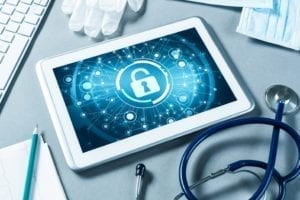I recently heard an interesting comment that “meaningful use drove the data gathering.” As you look at meaningful use, it has been the driver of data gathering in healthcare. I’m not sure any other technology has gathered more healthcare data than EHR software (I guess the health plans might have a case here, but it’s different healthcare data). Much of the EHR adoption is attributed to meaningful use.
While it’s great that we’re gathering all of this healthcare data, it’s worth asking the question of what’s being done with this data. Are we meaningfully using the data we’ve gathered? Is the data in a format that we can use the data?
The past 3-5 years of EHR has been defined by EHR systems that converted the paper chart world into an electronic chart world. I believe this is a great step forward, but it’s only a step. The next 5 years we’re going to start using the data that’s been gathered into EHR software and that will change healthcare.
One challenge we face is that many EHR vendors are locking in the data. They’ve gathered the data, but they haven’t set it free so it can be used for good. I believe locking in the data is bad for healthcare, but I also believe that it’s a bad business decision by EHR vendors.
In the future, EHR vendors will be differentiated more on the marketplace of third party applications they support than on their own in house developed apps.
I think we can barely imagine what benefits will come from the proper use of the data we’ve collected in EHR software. EHR data is a treasure trove of opportunity. We just need EHR vendors to start acting like the database of healthcare and stop trying to be the end all be all solution. Then, we’ll see innovation that we haven’t even imagined come into view.














John,
Data is our greatest asset. Thanks for reminding us. And don’t forget about the unstructured stuff too. As a former coder, medical staff data analyst and overall HIM professional – I understand all too well how much information hides in all those documentation nooks and crannies. EHRs have helped us all make great strides in capturing data, but there’s lots more to still do.
[…] dreamed about this as well. In fact, I recently wrote a post on Hospital EMR and EHR titled “Meaningful Use Drove the Data Gathering” where I suggest things like “EHR data is a treasure trove of opportunity.” and […]
I want to see which EHR vendor will be the first to actually recommend that the facility utilize NLP to convert the text in the paper into data, to be populated into the EHR at the point of EHR Go Live. As opposed to scanning and dropping in PDFs, which are less useful than the paper they were written on, some progressive EHR vendor is going to see that the patient’s history began prior to the EHR Go Live, and care that patient care could be impacted, negatively, by clinicians having to click through massive amounts of historical PDFs.
Steve,
Thanks for joining the conversation. I’ve seen a few people do this actually. Well, they didn’t use NLP, but they did do clinical data abstraction on the old charts to get some of the data out of the paper. If you can lower the costs of it through NLP, I think many will be interested.
Last year has been very eventful for the Healthcare IT industry, with the widespread adoption of HIPPA, Hitech regulations and the approaching deadlines for Healthcare organizations to switch to EHRs have definitely led to some systems being implemented in a chaotic manner without due importance given to meaningful use, also aiding to this turmoil is the constantly changing regulatory landscape.
Do let me know your views on this.
For EHRs to be really transformational , one needs an system which is flexible, interoperable and can adapt to changing compliance requirements easily.